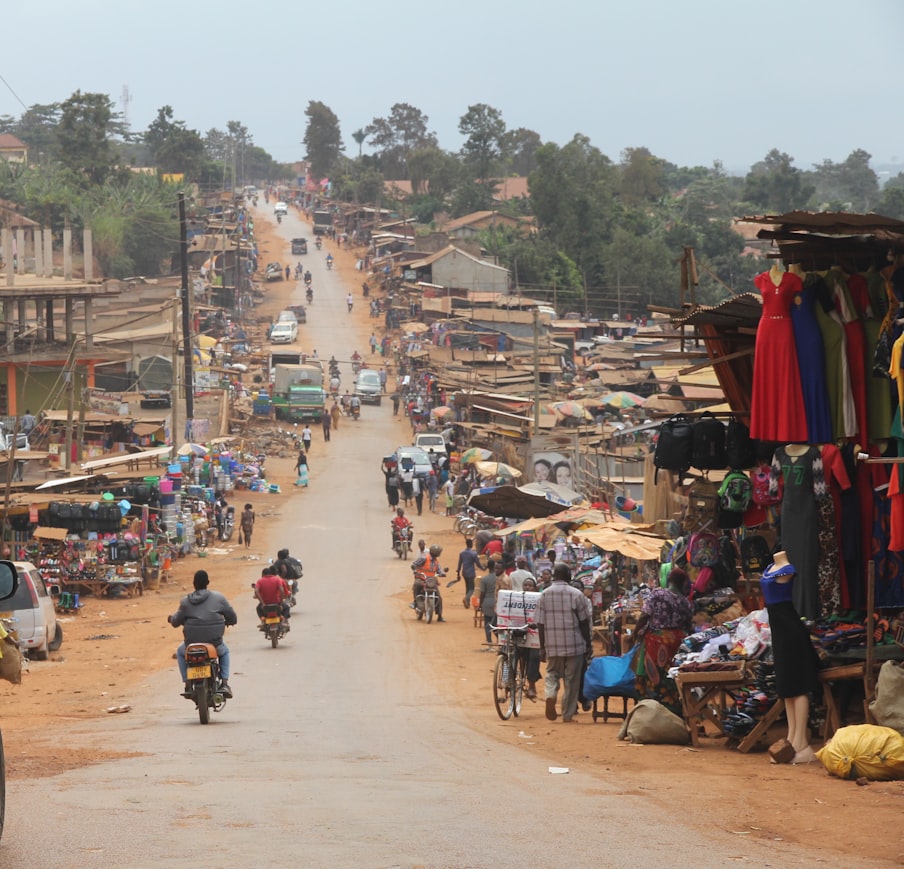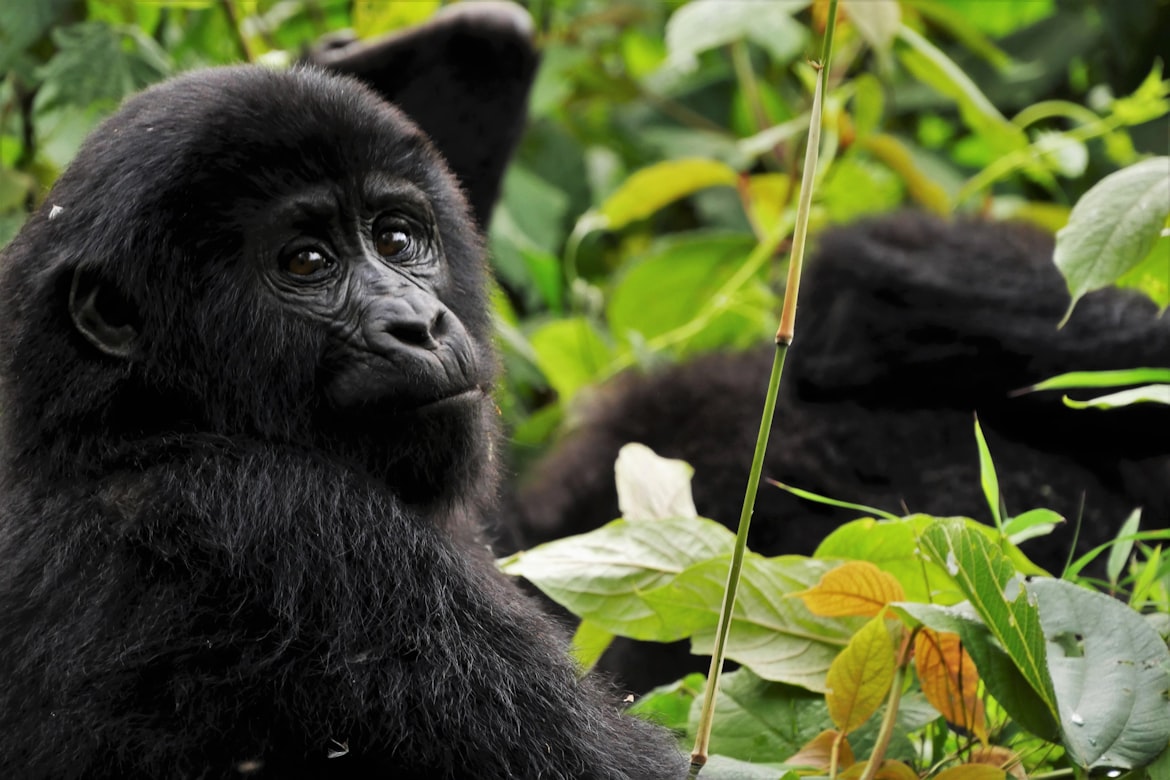Top Attractions
Uganda, often referred to as the "Pearl of Africa," is home to some of the most breathtaking natural wonders on the continent. A journey to Bwindi Impenetrable National Park offers one of the most profound wildlife encounters in the world—the chance to trek through dense rainforest to observe endangered mountain gorillas in their natural habitat. Murchison Falls National Park presents a dramatic spectacle where the Nile River forces its way through a narrow gorge and plunges down with thunderous power. Queen Elizabeth National Park offers diverse landscapes of savannah, wetlands, and crater lakes, where visitors can spot lions, elephants, hippos, and over 600 species of birds. Lake Bunyonyi enchants with its mist-covered waters and 29 islands, making it a perfect retreat for canoeing and relaxation. The adventure continues at the source of the Nile in Jinja, where adrenaline-seekers can try white-water rafting, kayaking, and bungee jumping.
Local Dishes
Ugandan cuisine is hearty, starchy, and deeply rooted in tradition. Matoke, a dish made of steamed green bananas, is a national staple often served with rich meat or groundnut-based sauces. Rolex, a street food favorite, consists of a rolled chapati filled with eggs, vegetables, and sometimes meat, making it a perfect on-the-go meal. Luwombo is a delicacy prepared by steaming meat or groundnuts in banana leaves, infusing it with smoky and earthy flavors. Posho, a maize flour porridge, is frequently eaten alongside beans, meat, or vegetables and forms the backbone of many meals. For dessert, mandazi, a sweet and slightly spiced fried dough, is commonly enjoyed with tea.
Transportation Tips
Public transport in Uganda is mostly informal, with minibus taxis (matatus) and motorcycle taxis (boda-bodas) being the primary modes of urban travel. While matatus are cheap and widely available, they can be crowded and have unpredictable schedules. Boda-bodas are faster and more flexible but can be dangerous due to lax traffic enforcement, so travelers are advised to always wear a helmet. Intra-city buses are available in some larger towns, though they are limited. For longer journeys between cities, coach buses like PostBus or Link Bus offer safer and more comfortable options. Car rentals are possible, especially for travelers heading to national parks, but hiring a local driver is highly recommended due to challenging road conditions and local driving norms.
Budget Travel Tips
Travelers on a tight budget will find Uganda quite affordable if they stick to local guesthouses, eat at local food stalls, and use matatus for transport. Backpacker hostels in Kampala and Jinja offer dorm beds, communal kitchens, and tour planning assistance at reasonable rates. For moderately priced travel, consider mid-range lodges and safari operators who provide package deals including transport, accommodation, and park entry. Those with a bit more to spend can opt for luxury eco-lodges in national parks, guided gorilla trekking permits, and private transfers. Bargaining is common at markets and with transport providers, and carrying cash (especially in small denominations) is essential in rural areas.
Safety Info
Uganda is generally safe for tourists, particularly in major cities and popular destinations. However, petty crimes such as pickpocketing and bag snatching can occur in crowded areas, so travelers should remain vigilant and avoid walking alone at night. When using boda-bodas, insist on a helmet and avoid unlicensed operators. Political demonstrations can arise unexpectedly; it’s best to avoid large gatherings and monitor local news. While national parks are well-managed, travelers should always follow guide instructions and stay within designated areas. Malaria is prevalent, so anti-malarial medication and mosquito precautions are advised.
Cultural Etiquette
Ugandans are known for their hospitality and warmth, and showing respect for local customs is appreciated. Greetings are important and should be initiated with a handshake and a smile. Modest dress is recommended, particularly in rural areas and during visits to religious sites. It is customary to ask permission before taking photos of people. Public displays of affection are frowned upon in conservative areas. Tipping is not mandatory but is welcomed in restaurants and by guides, drivers, and hotel staff.
Travel Style Fit
Uganda is an excellent destination for adventurous travelers, nature lovers, and those seeking meaningful wildlife encounters. Gorilla trekking, white-water rafting, and hiking through remote parks appeal to those who crave adrenaline and the wild unknown. Cultural enthusiasts will appreciate Uganda’s diversity of tribes, languages, and traditions. Eco-conscious travelers will find lodges and tours focused on sustainability and community involvement. While Uganda is less developed in terms of luxury infrastructure compared to other East African countries, high-end options do exist for those willing to go off the beaten path in style. Overall, Uganda rewards travelers with a rich and authentic experience that blends adventure, culture, and raw natural beauty.

Best Time to Visit
Uganda is a year-round destination, but the best times to visit are during the dry seasons, from December to February and June to September. These months provide ideal conditions for wildlife viewing, gorilla trekking, and outdoor adventures, with less mud and better road access. The wet seasons—March to May and October to November—bring lush landscapes and fewer tourists, but heavy rains can hinder travel, especially in remote regions. Birdwatching is excellent year-round but peaks during the migratory season from November to April.
Accommodation Recommendations
For budget travelers, Red Chilli Hideaway in Kampala offers dormitory beds and budget rooms in a lively atmosphere, complete with a pool and restaurant, making it a favorite among backpackers. In Jinja, Nile River Explorers Hostel provides affordable lodging and organizes adventure tours like rafting and kayaking. For mid-range comfort, 2 Friends Guesthouse in Jinja offers stylish rooms, a pool, and lakeside views. Travelers heading to national parks will find great value in places like Engagi Lodge near Bwindi, which provides guided gorilla treks. Those seeking luxury will enjoy the lavish experience at Kyambura Gorge Lodge near Queen Elizabeth National Park, which blends local charm with top-tier amenities and offers breathtaking views and gourmet cuisine. Similarly, the Apoka Safari Lodge in Kidepo Valley National Park provides a secluded luxury escape with expansive views and personalized service.
Languages Spoken
English and Swahili are Uganda's official languages, with English commonly used in business, government, and tourism. Luganda is widely spoken in the central region, including Kampala, and acts as a lingua franca across many parts of the country. Other local languages include Runyankole, Acholi, and Lusoga, among many others. Basic greetings in Luganda or Swahili are often met with appreciation.
Currency
The official currency of Uganda is the Ugandan Shilling (UGX). While US dollars are accepted in some establishments, especially those catering to tourists, it is advisable to have local currency for most transactions. ATMs are widely available in cities, but may not be reliable in remote areas. Credit cards are accepted in upscale hotels and restaurants, though a surcharge may apply.
Common Traveler Mistakes to Avoid
A common mistake is underestimating travel times between destinations. Roads can be rough, and distances that appear short on a map may take hours to cover. Another misstep is failing to book gorilla trekking permits in advance; these permits are limited and often sell out months ahead of time. Travelers also often neglect to carry enough cash, especially when venturing into rural areas where ATMs are nonexistent. Skipping travel insurance, especially when planning adventure activities, is another oversight that can have significant consequences. Lastly, not checking the season before planning a trip can lead to travel during heavy rains, which can impact accessibility to major attractions.
Essential Apps & Tools
Maps.me and Google Maps are crucial for offline navigation, especially in rural areas. SafeBoda offers a reliable and safer way to book motorcycle taxis in Kampala. Jumia Food is useful for food delivery in urban areas, while Airtel and MTN apps help manage local SIM card data and mobile payments. WhatsApp is the main form of communication, and XE Currency assists with real-time exchange rates. For planning national park visits, the Uganda Wildlife Authority website is a valuable resource.
Suggested Itinerary Styles
A one-week itinerary might begin in Kampala with cultural exploration and local cuisine, followed by a trip to Jinja for two days of water sports on the Nile. Next, travelers can head to Queen Elizabeth National Park for wildlife safaris and then conclude with a gorilla trek in Bwindi Impenetrable Forest. A two-week itinerary can expand to include Murchison Falls, Lake Bunyonyi for relaxation, and Kidepo Valley for remote, off-the-beaten-path adventure. Independent travelers with more time may choose to explore less-visited areas like Sipi Falls, the Rwenzori Mountains, and the crater lakes region. Travel should be paced to allow for road delays and to fully appreciate the scenery and interactions along the way.
Fun Facts
Uganda is home to nearly half of the world’s remaining mountain gorillas, making it a top destination for primate tourism. Lake Victoria, Africa’s largest lake and the source of the Nile River, lies on Uganda’s southern border and is vital to both the ecosystem and economy. Uganda has one of the youngest populations in the world, with more than half of its citizens under the age of 18. The equator runs directly through Uganda, and there are several designated spots where travelers can straddle both hemispheres. Additionally, the country's unique location and topography support over 1,000 bird species, making it a birdwatcher's paradise.
